WAREHOUSE TRACKSは、世界の様々な人々とワクワクするものを生み出す状況や環境を築くことを目標に掲げています。
これは、そんなコミュニティの輪を作り、広げ、何かを始めてみたい人たちに、実際にそれを始めるきっかけや、モチベーションを共有することを目的とした連載です。
第一回目のゲストは近藤大彗(No Buses / Cwondo)さんです
At WAREHOUSE TRACKS, we seek to foster an environment where individuals from diverse backgrounds across the globe can come together to create something truly exciting.
This series of articles is aimed to inspire and expand this community, offering both motivation and the opportunity for those wanting to start something of their own to take the first step.
Our first guest is Taisei Kondo (No Buses/Cwondo).
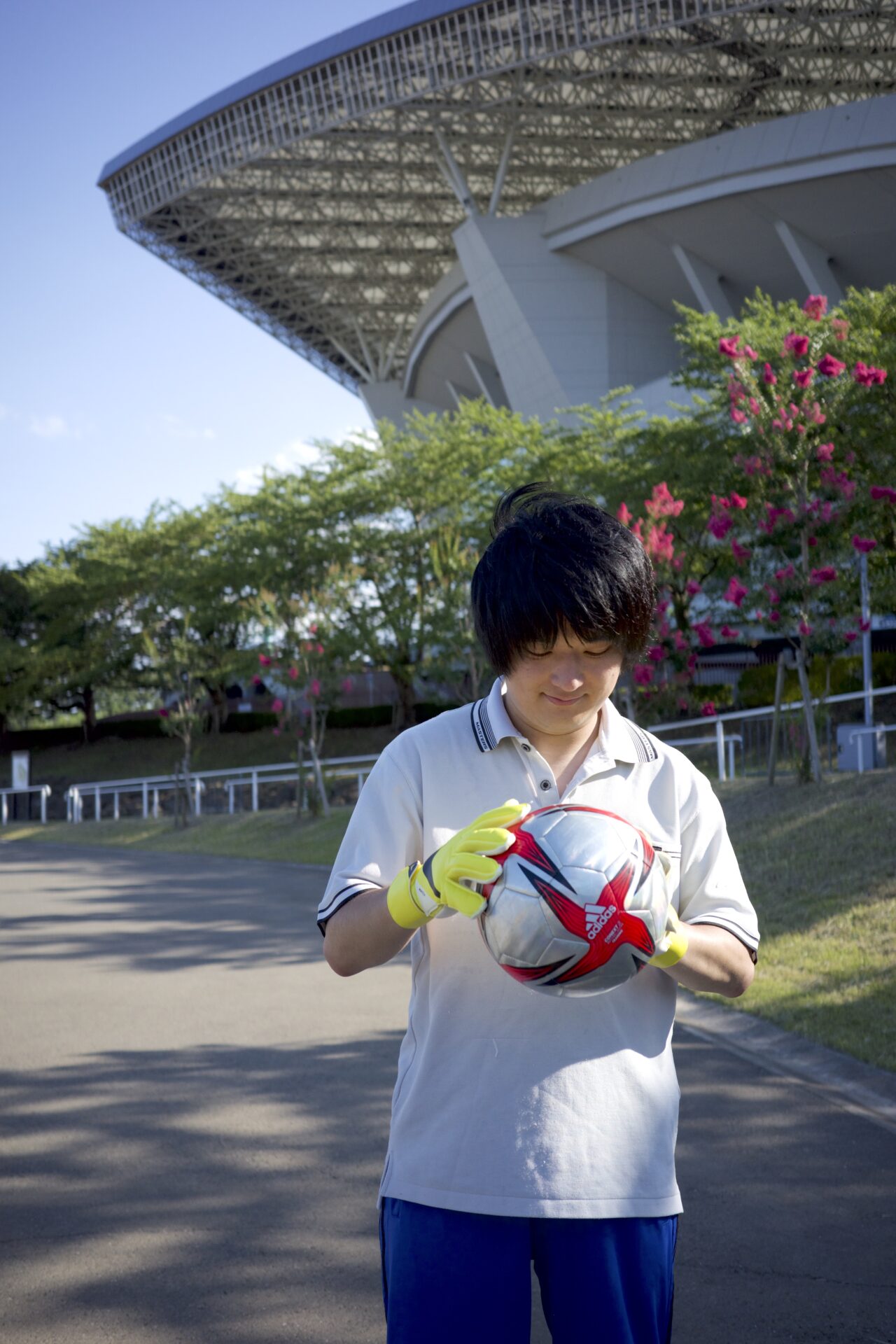
小学生の時はひょうきんな性格だった。
お笑いが好きだったのもあるけど、いつも笑ってくれる友達が側にいたことも、そんな自分でいれた大きな理由だったと思う。
放課後、地元の駄菓子屋さんに集まって、みんなで秘密基地のある場所に行き、そこで、モンハンや遊戯王をして遊んでる時間が大好きだった。
学校も友達も好きだったし、自分を偽る理由なんて何もなかった。
中学受験をして私立に入学したあと、そんな平穏な日常は崩れていった。
これまで遊んでいた友達のいない、新しい学校の新しい環境に馴染めず、いままでの自分でいることが出来なくなると、いつしか無理して明るく振舞うようになっていった。
“本当の自分は何だろう”
そんなことをよく考えるようになって、ふと、自分がコミュニティーや環境に依存して生きてきたことを悟った。
家庭の問題が浮き彫りになったり、続けていたサッカー部を退部したりと、同じ時期に環境の変化が重なって、高校に進学した頃には、これまで以上に、あらゆることに適応できなくなっていた。自分自身で自分や生活をコントロール出来なくなっていることは恐怖で、その恐怖は未来への焦りに変わっていった。
そんな不安を払拭したかったから、アルバイト、勉強、ダンス、お笑いなど、色んなことに挑戦した。でも、どこか無理をしてる気がして、すべて諦めてしまった。
意味を持ってやることが何もないように思えて、それなのに何かに追われて生きていた。
When I was in elementary school, I had a humorous personality. I loved comedy, but more than that, I loved having friends who laughed at my jokes—it made being funny effortless. After school, we’d gather at the local candy shop and then head to our secret hideout, where we spent hours playing Monster Hunter and Yu-Gi-Oh! I loved school, I loved my friends, and I never felt the need to be anything other than myself.
But that peaceful routine was disrupted when I passed the entrance exam for junior high and enrolled in a private school. Without the friends I used to play with, I struggled to adjust to my new environment. And when I could no longer just be myself, I started forcing a cheerful personality. I often found myself wondering, Who am I, really? That question lingered, and at some point, I realized how much I had been relying on my community and surroundings to define me.
At the same time, other changes started piling up. I had to leave the soccer team I’d been playing on, and family issues that had been hidden from me suddenly came to light. The feeling of losing control over my life turned into fear, and that fear became a deep anxiety about the future.
Desperate to shake that anxiety, I threw myself into different things—part-time jobs, studying, dancing, even comedy. But no matter what I tried, it always felt forced, like I was pushing myself in a direction that didn’t fit.
I felt like nothing I did had real meaning, yet something inside me kept pushing me forward.
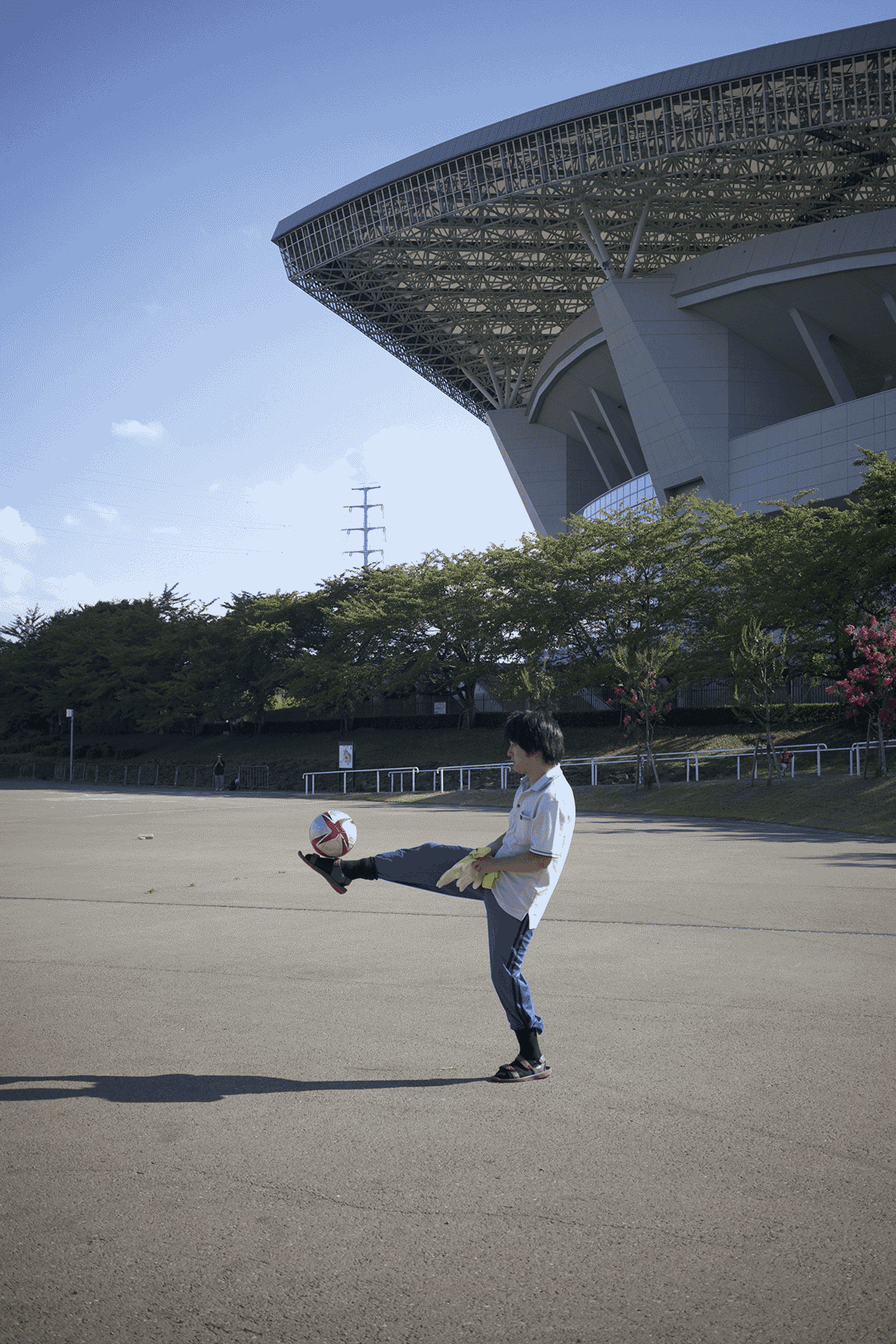
そんな頃、なんとなく聴き始めたONE OK ROCKにハマった。
実写版るろうに剣心を観て、主題歌を担当していた彼らの曲をかっこいいと思ったのがきっかけだった。
ONE OK ROCKにハマるまえ、家でよく遊んでたゲームのクロノ・トリガーの中世というフィールド・ステージで流れるBGMが好きだったり、日常に音楽がなかったわけじゃないけど、自発的に、しかも毎日音楽を聴くようになったのはこれが初めてだった。
ヴォーカルのTAKAが使うマイクを買って、TAKAがそうしているようにマイクに白いテープを巻いたり、いつしかそんな憧れは、自分の価値を見出したいという気持ちと、続けられる何かを始めたいという意欲になって、僕をギターに向かわせた。
Around that time, I stumbled upon a band called ONE OK ROCK and got completely hooked. I first heard them in the anime Rurouni Kenshin—their theme song caught my attention, and I thought it was cool.
Before that, music had always been in my life in the background. I liked the soundtrack from Chrono Trigger, a game I used to play at home, but I never actively sought out music. This was the first time I found myself listening to songs every day, just for the sake of it.
I even bought the same microphone that the vocalist, Taka, used, wrapping it in white tape just like he did. That longing—to find something that felt like mine, something I could pour myself into—eventually led me to the guitar.
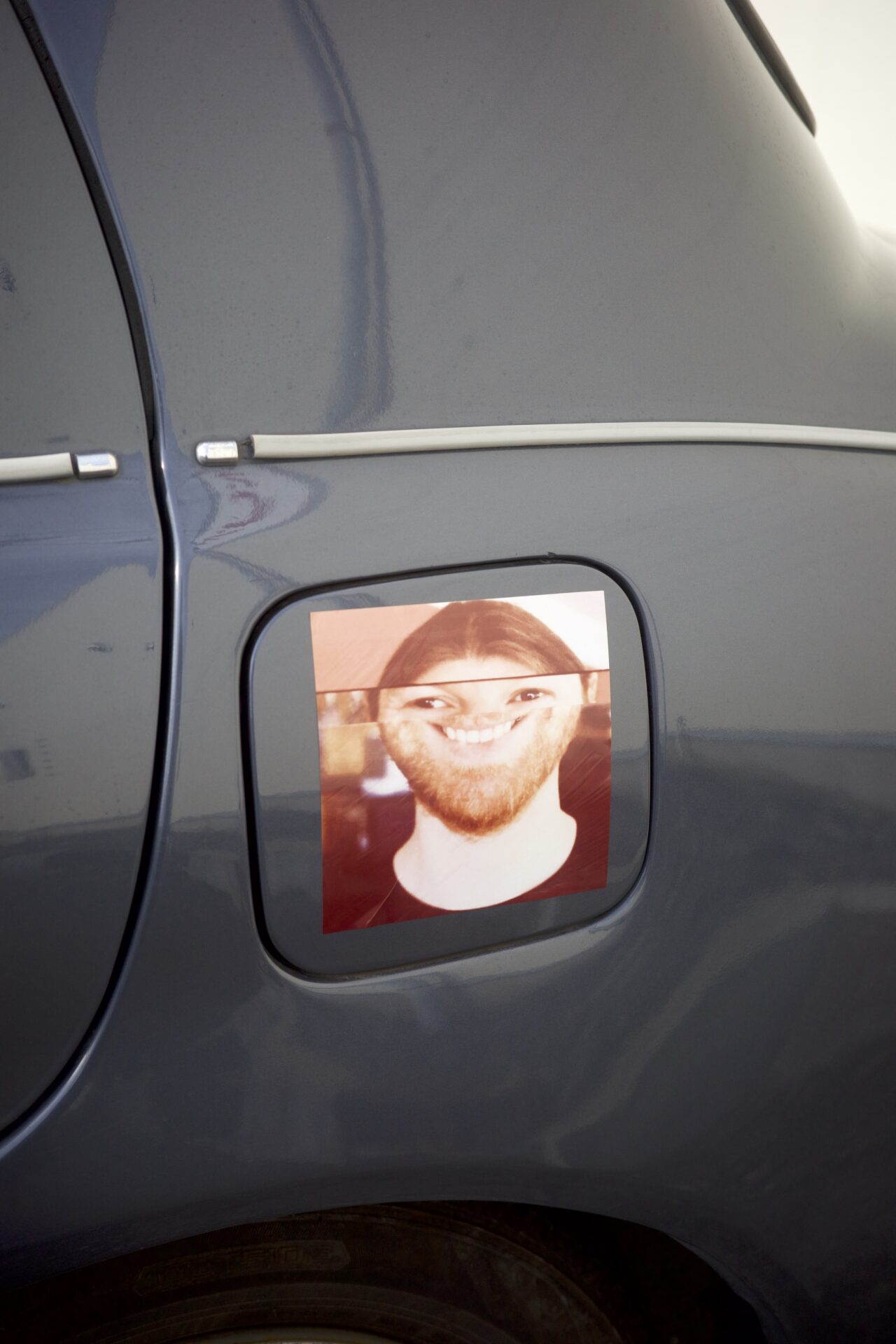
中途半端な物じゃだめだと、バイトで貯めたお金を注ぎ込んで、フェンダーのテレキャスターを買った。
最初は何もかも分からず、ギターのボディーに付属するスイッチをオンにして弦を弾けば、大きな音がギターから鳴るものだと思っていた。でも実際に弾いてみるとぽろぽろとしか鳴らず、ぼったくりにあったと焦った。
調べるとアンプが必要だと分かって、急いで楽器屋へ走った。
アンプを抱えて家に戻り、あらためてギターを鳴らしてみるも、またしても迫力ある音は出ず、再度調べてみると、今度はシールドが必要だと分かって、ふたたび楽器屋に戻った。
始めたての頃は、教則本を読みながら、ONE OK ROCKやMr.Childrenの曲をただコピーしてた。
毎日弾くようになったギターが少しづつ弾けるようになると、もっと色んな曲を知って、もっと色んな曲を弾きたいと思うようになって、タカが影響を受けた音楽を調べてみると、Red Hot Chili Peppers、NIRVANA、Paramore、 Green Day、New Found Glory、色んなバンドがヒットした。
その後、TSUTAYAに通うようになって、おすすめコーナーに陳列されていたArctic Monkeysなどにも出会った。
小学生の頃から、存在しない曲を鼻歌で作るのが好きだったこともあって、同じコード進行で作られている曲がたくさんあることを知ると、自分で考えたメロディーをそのコード進行のうえに乗せて、それを携帯のボイスメモでレコーディングしてみた。
ボイスメモを再生すると、アンプから流れるディストーションが掛かったギターの音の先に、何を歌っているか分からない自分の声がうっすらと録音されていて興奮した。
昔から、説明書を読むなど、やり方を理解して何かを始めることは大の苦手だったけど、ハマったら没頭する性格もあって、どうやるかも分からないまま、とにかくギターやGarageBandを使い続けた。
その時は、何かを目指してやってたわけじゃなかったし、やることがそれしかなかったから続けてた。でも没頭できる好きなことを見つけられたことで、将来の焦りは少しづつ楽しさに変わっていって、それはバンド結成への夢になっていった。
だから、大学に入学して、現No Busesベーシストの沙織さんに勧誘してもらったサークルに入ったあと、自分から趣味の合いそうな人に声を掛けてバンドメンバーを集めた。
Not wanting to half-ass it, I spent the money I had saved from my part-time job and bought a Fender Telecaster. At the time, I had zero knowledge about instruments. I genuinely thought that if I flipped the switch on the guitar and plucked the strings, a loud sound would come out from its body. But when I tried it, all I heard was a dry, plucky noise.
For a second, I thought I had been scammed.
A quick search later, I realized I needed an amp. I ran back to the music shop, came home with an amp in my arms, and tried again—only to be disappointed once more. Another search, another realization: I also needed a cable.
At first, all I did was copy songs by J-pop bands like ONE OK ROCK and Mr. Children, following along with instructional books. But as I got more comfortable with the guitar, my curiosity grew. I wanted to play more songs, different songs.
Looking into Taka’s musical influences led me to bands like Red Hot Chili Peppers, Nirvana, Paramore, Green Day, and New Found Glory. Later, I started renting CDs at TSUTAYA, where I came across Arctic Monkeys and other bands displayed in the recommendation section.
Since elementary school, I had enjoyed humming melodies that didn’t exist. When I discovered that many songs were built on the same chord progressions, I started layering my own melodies over them and recording everything on my phone’s voice memo.
I was never the type to learn things by carefully reading instructions. If anything, I was terrible at that. But once I got into something, I’d throw myself into it completely. So, without fully understanding what I was doing, I just kept playing my guitar and experimenting in GarageBand, figuring things out as I went.
At the time, I wasn’t aiming for anything. I kept making music simply because it was the only thing that felt right. But the more I immersed myself in it, the less I worried about the future. What had started as a distraction turned into something I genuinely enjoyed—then, little by little, that enjoyment grew into a dream: I wanted to form a band.
When I entered university, I joined a club that Saori, now the bassist for NO BUSES, had recruited me into. That’s where I started reaching out to people who seemed to share my interests, slowly gathering band members.
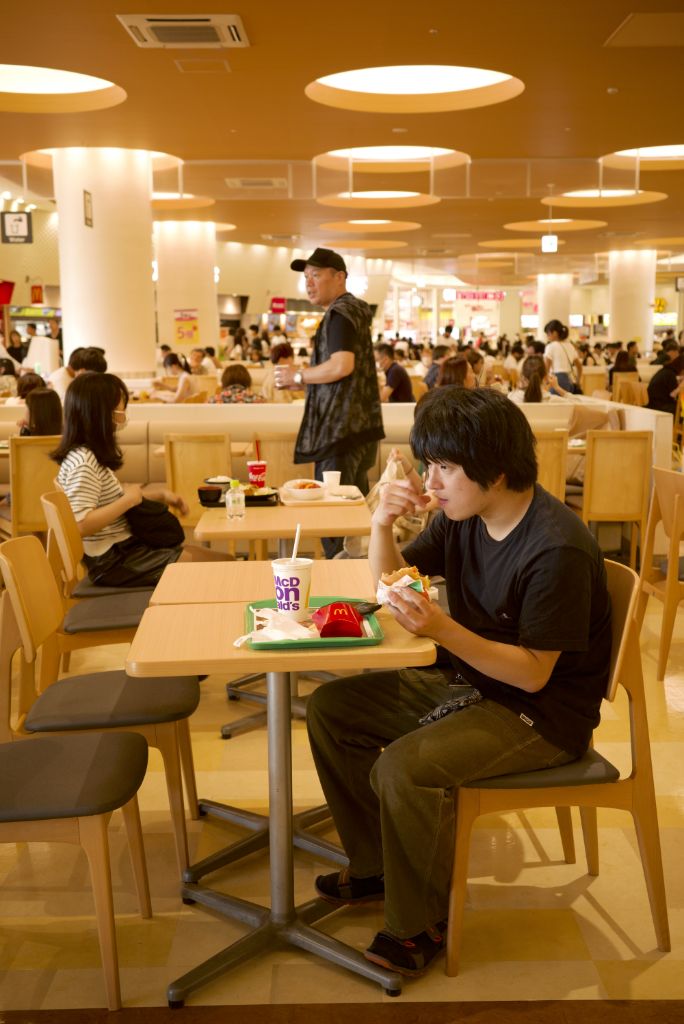

No Busesの初ライヴ。
一人一万円を払って出演したイベントにはコピーバンドばかりが出演していて、オリジナルソングを披露した僕たちは完全に浮いていた。
そのあと、自分が好きで通うライヴハウスでライヴがしたいと思い、デモ音源を持って下北沢THREEに足を運んだ。
従業員さんに勇気を出して声を掛け、連絡先を封入した音源を渡すことが出来たけど、一向に返事はこず。だから次に訪れたとき「良かったらいま聴いて貰えませんか?」と思い切って聞いてみた。そしたら従業員の田代さんが、その場で音源を聴いてくれて、田代さんの働きかけで、下北沢THREEのイベントに出演させてもらえることになった。
田代さんが誘ってくれたイベントでライブをした日。
従業員の菅波さんが僕たちのことを気に入ってくれて、今度は、菅波さんが主宰するBlock Partyに誘ってもらえることになった。
そうした人たちとの出会いや協力もあって、バンド活動は信じられない速度で突き進んでいって、気付くと僕たちはレーベルと契約するにまで至っていた。
たくさん嬉しいことがあったけど、もしかしたら、これから更に音楽を楽しく続けられるかもしれないと思えたことが何よりも嬉しかった。
Our first gig was at an event where every band was playing covers—except us. We had paid 10,000 yen each to perform, only to realize we were completely out of place with our original songs.
After that, I knew I wanted to play somewhere that actually felt right. There is a venue in Shimokitazawa called THREE that I loved, so I showed up with a demo CD in hand. I passed it to an employee working behind the bar, hoping for a callback. But weeks went by, and I never heard anything.
The next time I went back, I decided to be more direct. I asked another employee if he’d be willing to listen to it right then and there. To my surprise, Tashiro-san, a staff member at THREE, played it on the spot. He liked what he heard and invited us to perform at an upcoming event.
On the night of our performance, another THREE employee, Suganami-san, saw us play and invited us to a party he was hosting. From there, everything moved faster than I ever imagined. One opportunity led to another, and before we knew it, we had signed with a label.
There were so many moments of excitement along the way, but what made me happiest wasn’t signing a deal. It was the realization that I might actually get to keep making music and enjoy it for a long time.

レーベルと契約を結び、活動を続けるなかで、自分たちで作った曲をライヴで披露するという一連のバンド活動を本当に出来ているという実感が堪らなくなる瞬間は多々あった。
でも自分たちが取捨選択できると期待していたバンドの歩みは、徐々に自分の手に追えない範囲にまで及んで、いつしかバンド活動の嬉しさや楽しさはプレッシャーに変わっていった。
時間を掛けて好きな曲を作っていたかっただけなのに、ネットで曲がバズったことで、自分が変わらずにいれることに対する安心感が一気に崩れてしまった。
それに反発したい気持ちから、リスナーの期待を裏切るような曲を作ったりするようにもなって、矛盾と無責任さを感じながらバンド活動を続けてた。
そんな頃、コロナが蔓延して、バンドの人間関係だけじゃなく、自分の精神状態もどん底に落ちた。
演奏力のなさとか、英語のフレーズに対する理解のなさや、アイデアの枯渇など、ネガティヴな思考に陥って、完全に自信を失った僕の意識は、自分に向けられたYouTubeのコメントの誹謗中傷にいって、ついに心がボロボロになった。
もう何がなんだかよく分からなくなったし、自分がやりたかったことからどんどん離れていって、生きる糧さえ失ってしまうんじゃないかと思った。
After signing with a label, I experienced moments of overwhelming joy—being able to work as a band, write songs, and perform live felt like a dream. But as the band gained momentum, things started moving beyond our control. The excitement that once fueled us slowly turned into pressure.
I wanted to take my time, to create music the way I envisioned it. But when one of our songs unexpectedly went viral online, my sense of stability was shaken. Suddenly, staying true to myself felt impossible. In defiance, I started writing songs that deliberately went against listeners’ expectations. Yet, deep down, I felt conflicted and disconnected, like I was betraying both my audience and myself.
Then came the pandemic. The pressure that had been building up finally reached its breaking point. My relationships within the band suffered, and so did my mental state. I became painfully aware of my weaknesses—frustrated by my lack of technical skill, my shaky grasp of English lyrics, and the creative burnout draining me dry. With no confidence left, I fixated on the harsh comments on YouTube, letting them eat away at me.
It became a vicious cycle. The more I lost myself, the more I strayed from the music I actually wanted to make. At one point, I even feared I might lose the will to keep going altogether.
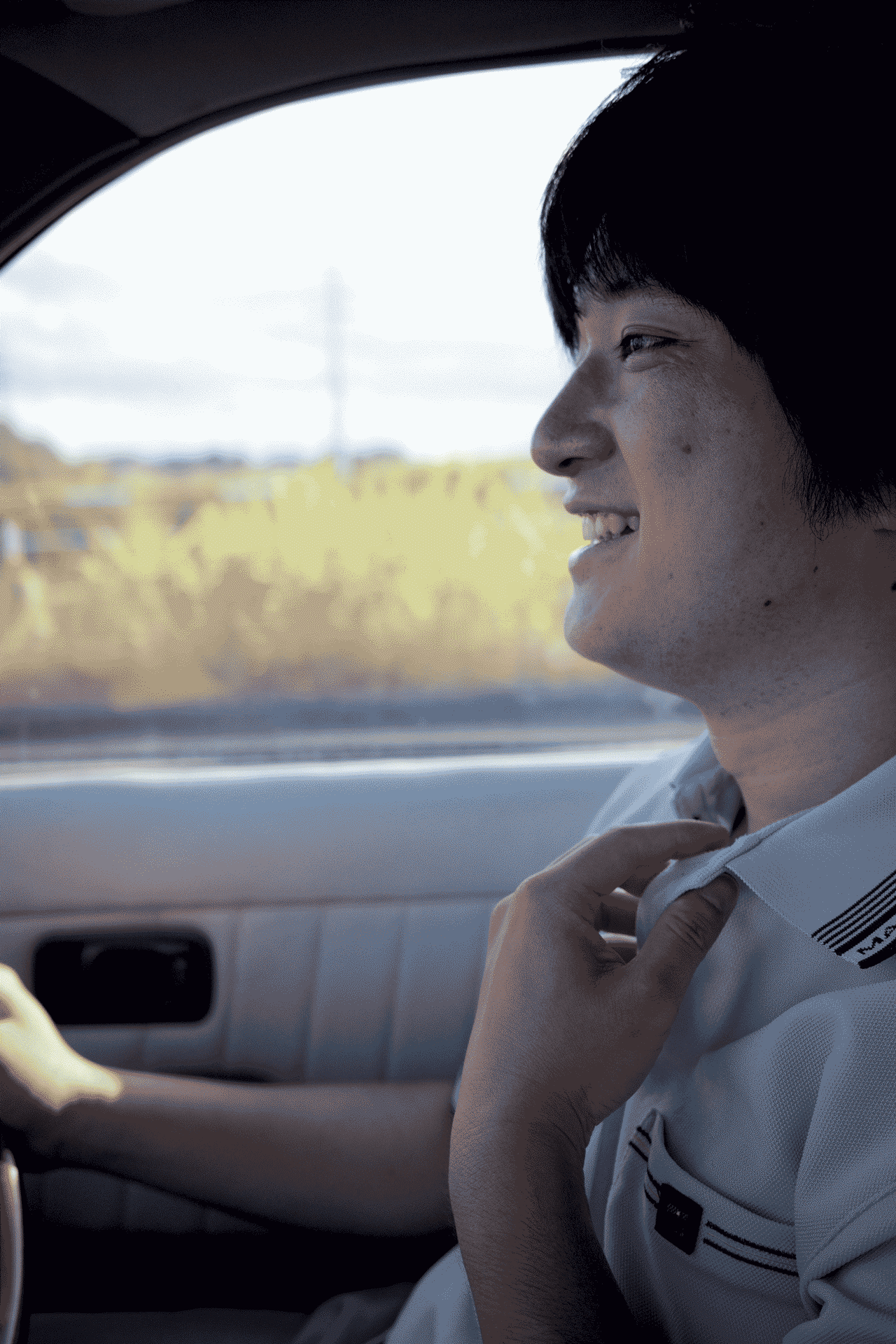
でも、そこにはまだ音楽があった。
ある時にふと、きっとこれまでもこれからも、音楽に変えられるものはないし、これが唯一頑張れるものなんじゃないかと気づいて、それまでまったく出来なかった宅録を始めてみた。
初めてギターを触って、初めてレコーディングをしてみた、音楽を始めた当時の心のざわめきを感じた。それは自分がやりたかったことを取り戻す作業で、自分の生きる糧に向き合う機会だった。
生まれて初めて触るDTM。
好きに曲を作っていたかった、あの頃の自分に立ち返った。
ソロの曲を作り始めてから、音楽の自由さにあらためて気づき、責任感なくただ好きなことを形にする楽しさを思い出した。それは製作だけじゃなくて、音楽を聴く行為においても影響を与えてくれた。
自粛期間中にまったく聴けていなかった音楽を聴けるようになると、これまで敬遠してたエレクトロニカにハマりだした。
凝り固まっていた固定概念がほぐれたおかげで、凄く難しい音楽だと思い込んでたAphex Twinでさえもキャッチーだと思い聴けるようになった。
ふたたび音楽に没頭するようになって、No Busesヘの想いも熱くなった。
何度も喧嘩して、かなりギリギリな状況だったけど、それでもバンドを今日まで続けてこれたのは、僕だけじゃなく、メンバー全員がこのバンドに恋い焦がれてきたからだと気づけた。そんな代えの効かない共同体的なこのバンドを、今はとても美しいものだと思える。
But even at my lowest, music never truly left me.
One day, I had a sudden realization—there was nothing else that could replace music in my life. It was the one thing that had always kept me going. With that, I finally started recording music at home, something I had never been able to do before. As I played, I felt something stir inside me—like the first time I picked up a guitar, the first time I recorded a song. It was a moment of clarity, a chance to reconnect with what I truly loved and what gave my life meaning.
For the first time, I experimented with digital music production, rediscovering the excitement of writing songs freely, without expectations. It felt like a fresh start, a way to reconnect with the creative joy I had almost lost.
As I worked on my solo music, I was reminded of the true freedom of making music—creating simply because I loved to. Without the weight of responsibility, I found myself enjoying music again, even as a listener. Songs I had avoided before suddenly sounded fresh. I became obsessed with electronica, a genre I had once overlooked. Even Aphex Twin, whose music I used to find difficult, now felt catchy and exciting. Looking back, I think my longtime love for synth-infused rock—bands like The Strokes, Foster the People, Phoenix, and Radiohead—had already paved the way for this shift.
As I deepened my connection with music, my feelings for No Buses also reignited. We had fights, and at times, it felt like we were on the verge of falling apart. But I came to realize that the reason we were still standing wasn’t just because of me—it was because every member of the band loved it just as much as I did. That’s when I understood: No Buses wasn’t just mine. It was something we had all built together. And now, I see it for what it truly is—something irreplaceable, something beautiful.

ネガティヴから開放されて、以前よりも性格が明るくなった。
いまは何を作って何を言われても怖くないし、音楽現場で人に会うときも、こんな自分ですいませんなんて思わなくなった。
人を好きになったからか、人から相談を受けるようになって、形は違えど何かを続けるに当たり、負い目や悔しさを感じている人が自分以外にもたくさんいることを知った。
音楽で何ができるだろう。
聴くことと作ることが分断されていない状況が自分にとって心地よくて、誰でも自由に演奏できる機会を設けた自主企画を今春から始めた。
音楽理論が備わってない人のグルーヴが曲になることを自分自身も体験したいし、プロフェッショナルとアマチュアの間には明確な分岐点が存在しないこと、何かを楽しむうえで物差しや選別は必要ないこと、そして、自分の気持ち次第で、自分の好きをいつでも実体験に切り替えられることを、この企画や自分の音楽活動を通して、少しでも多くの人に伝えられたらと思っている。
I feel like I’ve been freed from the negativity that once weighed me down, and my personality has become brighter as a result.
I’m no longer afraid of what I create or of how people might judge me. When I meet others in the music scene, I don’t feel apologetic about who I am anymore. It’s as if becoming more open myself has made others feel more comfortable sharing their struggles with me, too. I’ve realized that many people feel the same sense of guilt and frustration when they keep doing something, even if it looks different from what I’m doing.
This shift in perspective, combined with the comfort I now find in a space where listening and creating are intertwined, inspired me to start an independent project this spring. My goal is simple: to provide a platform where anyone can perform freely, in any way they wish.
Through this project, I want to experience firsthand how someone without formal music theory can still create a song, how the line between professionals and amateurs is often blurry, and how there’s no need to judge or categorize things in order to enjoy them. I want people to understand that, depending on their feelings, they can always turn what they love into a tangible experience.
I hope to share this philosophy with as many people as possible—through this interview, through my own projects, and through the music we create together.

